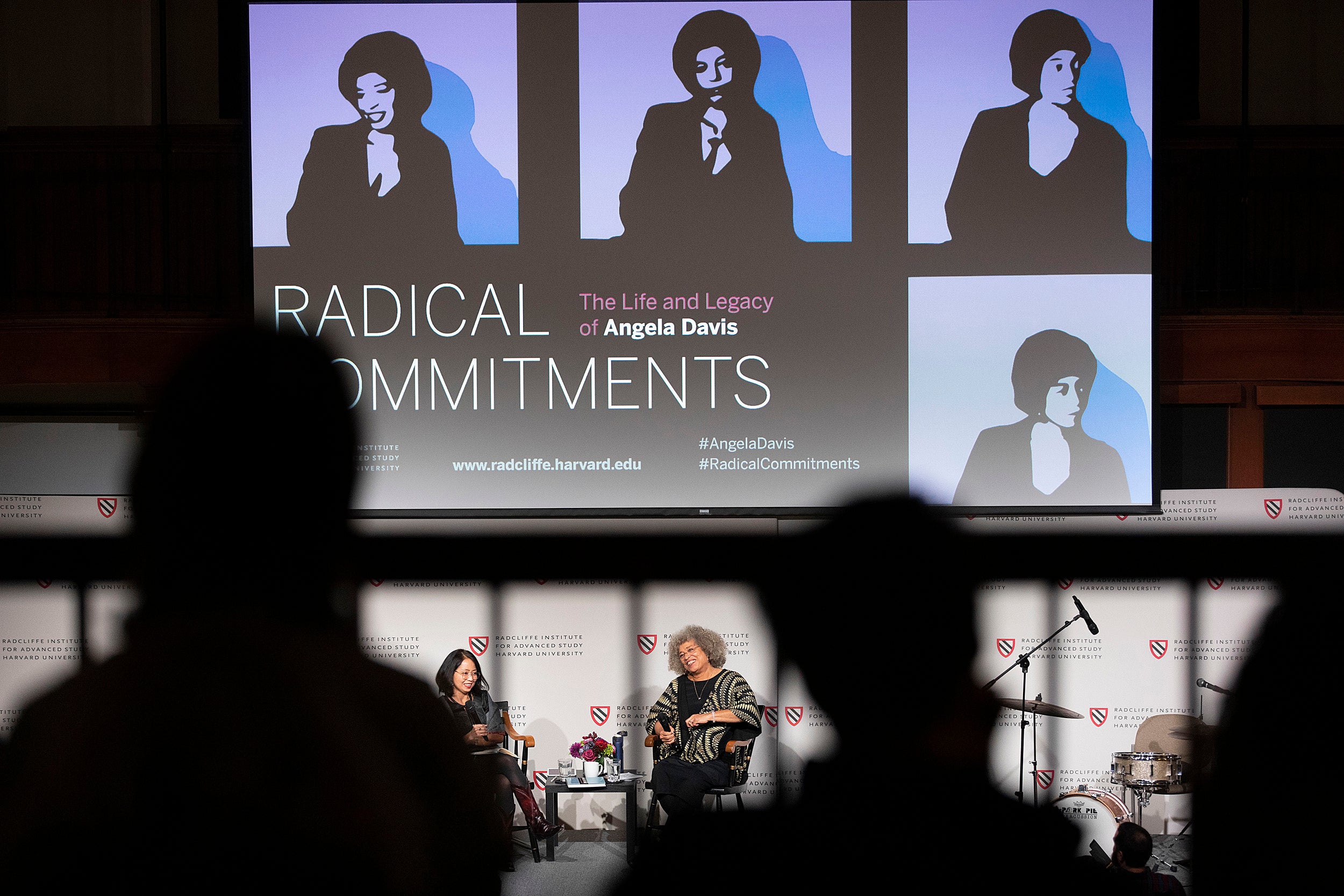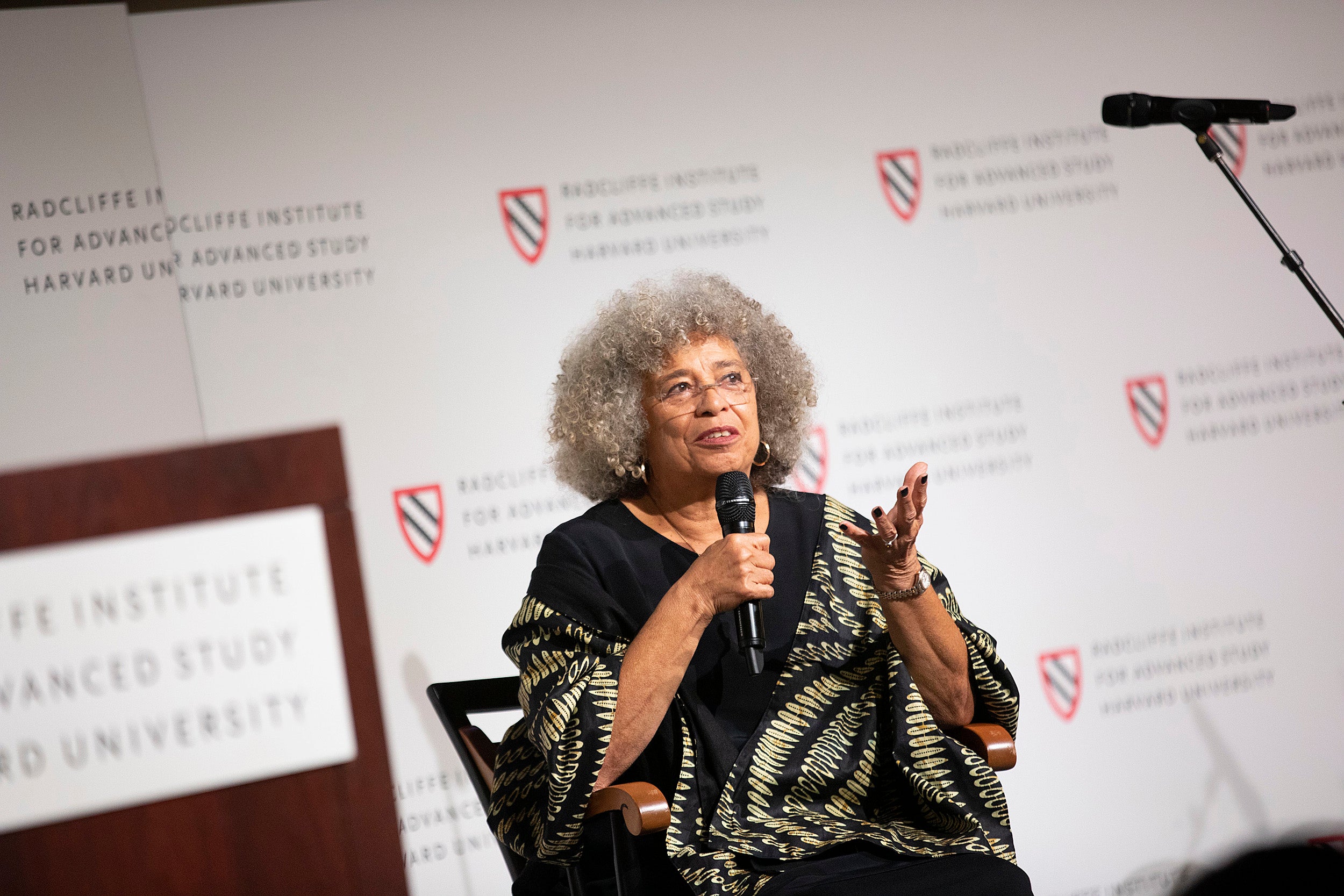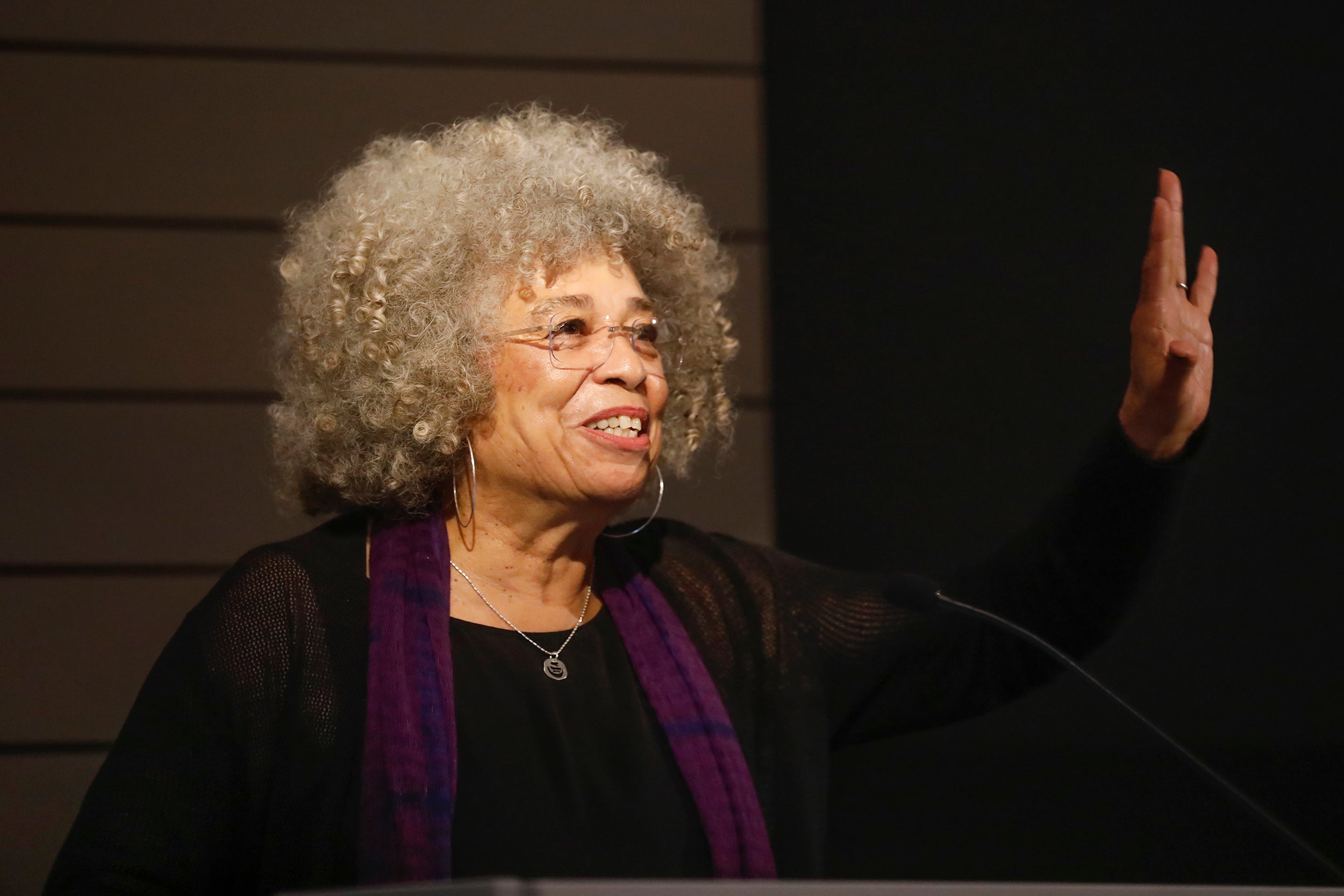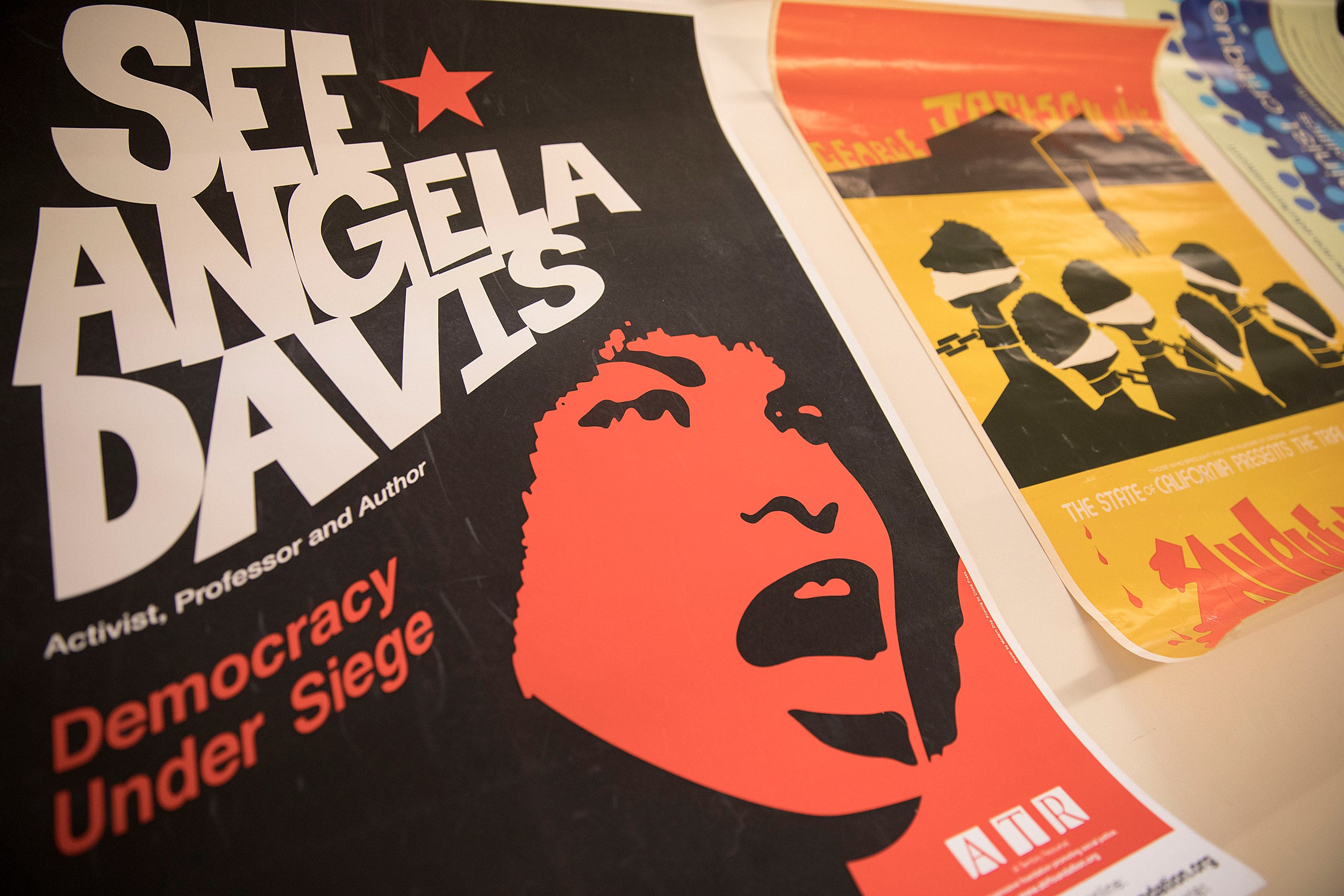
Ending a two-day conference at Radcliffe, Angela Davis (right) spoke with Neferti Xina M. Tadiar of Columbia University.
Photos by Kris Snibbe/Harvard Staff Photo
Angela Davis looks back
Famed activist talks about art and community; mass incarceration; and what we talk about when we talk about race
At Radcliffe’s Schlesinger Library, the life of scholar and political activist Angela Davis unfolds in an array of vivid ephemera. Items such as the letters she received from supporters while incarcerated, a manuscript of her autobiography marked with comments in the margins by her friend Toni Morrison, the FBI’s wanted poster of Davis, unpublished speeches, photographs, and much more shed light on her decadeslong commitment to activism.
“When I saved all the material I had no way in imagining that it would culminate in something like this. I just knew that I shouldn’t throw it away,” said Davis, who was on campus Tuesday to deliver the keynote address that capped a two-day conference at the Radcliffe Institute for Advanced Study on her work and her legacy.
In a wide-ranging conversation, Davis reflected on topics including how music and art can help transform and create community, the challenges of talking about race in America, and the need for prison reform, long a driving force of her activism — and informed in part by the 16 months she spent behind bars. Davis was charged with conspiracy kidnapping and murder in connection with a 1970 shootout during a courthouse escape that killed a superior court judge. While she was not present at the scene, investigators discovered that she had purchased several of the firearms used in the crime. An all-white jury acquitted her in 1972.
Early on in her career, Davis said she and friends eager to change the narrative around prisons decided to use the term “prison-industrial complex” to encourage people to “think about prisons in a different way.” Today she said she is inspired by “all of the scholarly work, the activist work that has emerged. To me that’s a major victory.”
But much more needs to be done today to stop mass incarceration, said Davis, who sees the problem as one rooted in racism, class structure, and an “ideologically constructed” notion of criminality so entrenched that “people see a young black man with baggy pants walking down the street and make assumptions that he’s a criminal.”

“And I am not only talking about white people. I am talking about people of color, I am talking about black people also succumbing to that ideological effect. This is why critical thinking is so important,” said Davis, who urged her listeners to “be critical about these issues.”
The event — timed to coincide with a current library exhibit featuring a selection of material from her papers — marks the opening of Davis’ archive at Radcliffe’s Schlesinger Library. The papers were acquired in 2018 — secured by the Radcliffe Institute with support from Harvard’s Hutchins Center for African & African American Research.
To highlight the diversity of the collection, conference organizers arranged the symposium around themes of revolution, feminism, and abolition, and included a range of scholars from Harvard and beyond. “Angela Davis’ life is so complex and unique and far-reaching and rare that we wanted to highlight those complexities and really confront some of her legacies,” said Elizabeth Hinton, John L. Loeb Associate Professor of the Social Sciences, who helped develop the symposium and curate the exhibit.
A lifelong advocate of racial justice, Davis noted that race continues to be such a difficult topic to discuss “because we talk about race as if it were a biological phenomenon, but at the same time we are arguing that it’s socially produced.”
“For me it makes no sense to talk about being black for the sake of being black. For me it makes no sense to talk about a notion of a blackness that encompasses everybody who looks a certain way,” Davis continued. Instead, she said the blackness she identifies with is deeply tied to the struggle for freedom and that such an approach means “we embrace those who are involved in the same struggle.”
In responding to questions from a handful of Harvard undergraduates and local high school students, Davis spoke about how she defines success for political and social movements and how she stays energized and committed to her work. Success, she said, consists of “figuring out how to ask the right questions at a particular moment,” and “learning how to make mistakes and learning from those mistakes.”
“What I find really exciting and energizing about our struggles is that we increasingly recognize what we did not know. If someone had asked me to define freedom 50 years ago I would have said, ‘We have to free the black man.’ That would have been my answer. And now it’s so much more complicated, precisely as a result of the wonderful activism and scholarship.”
Davis said that having fun and finding joy in the organizing effort has allowed her to “remain in this movement.” She encouraged her listeners to do the same and to draw inspiration from the process.
“We may not be there yet, and we may never get there, but we will definitely be on our way, and I think it’s the on our way, it’s the voyage, it’s the journey that is so beautiful and so revelatory of human potential.”






